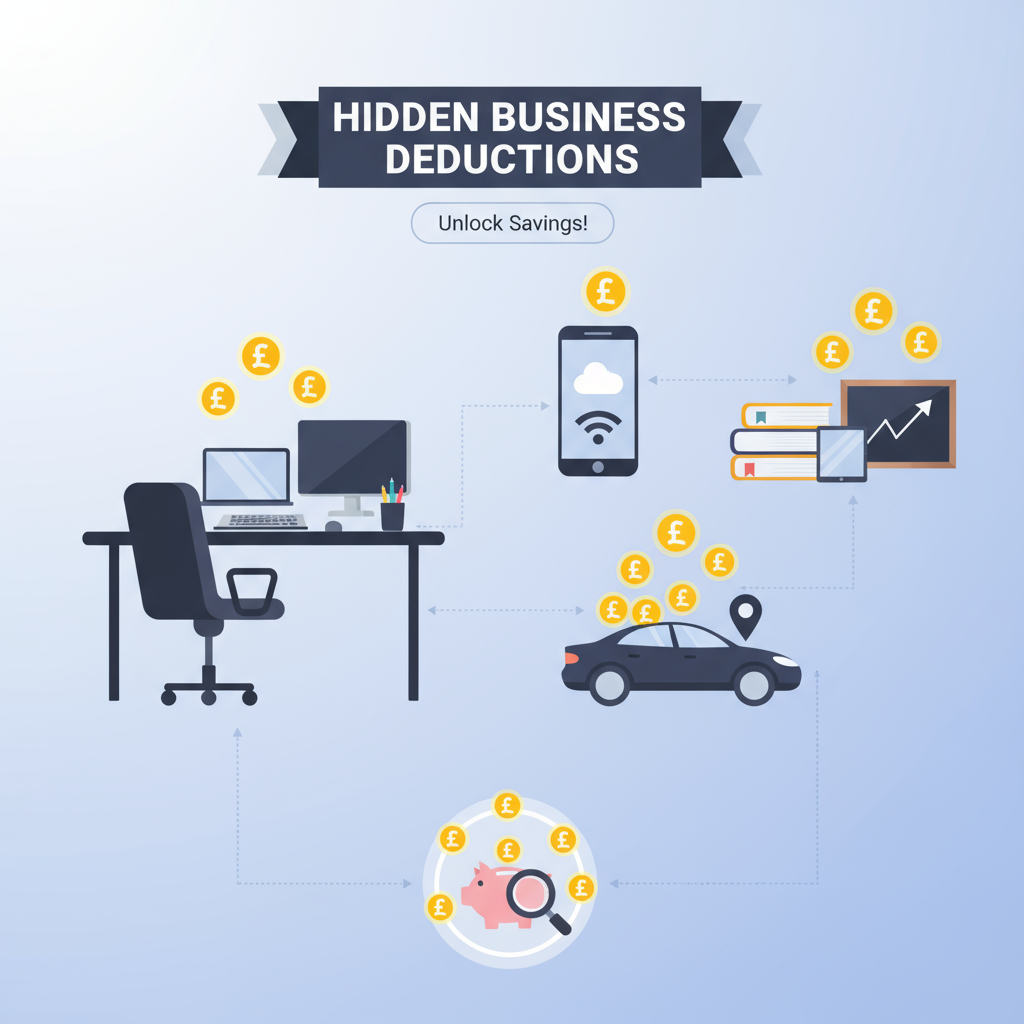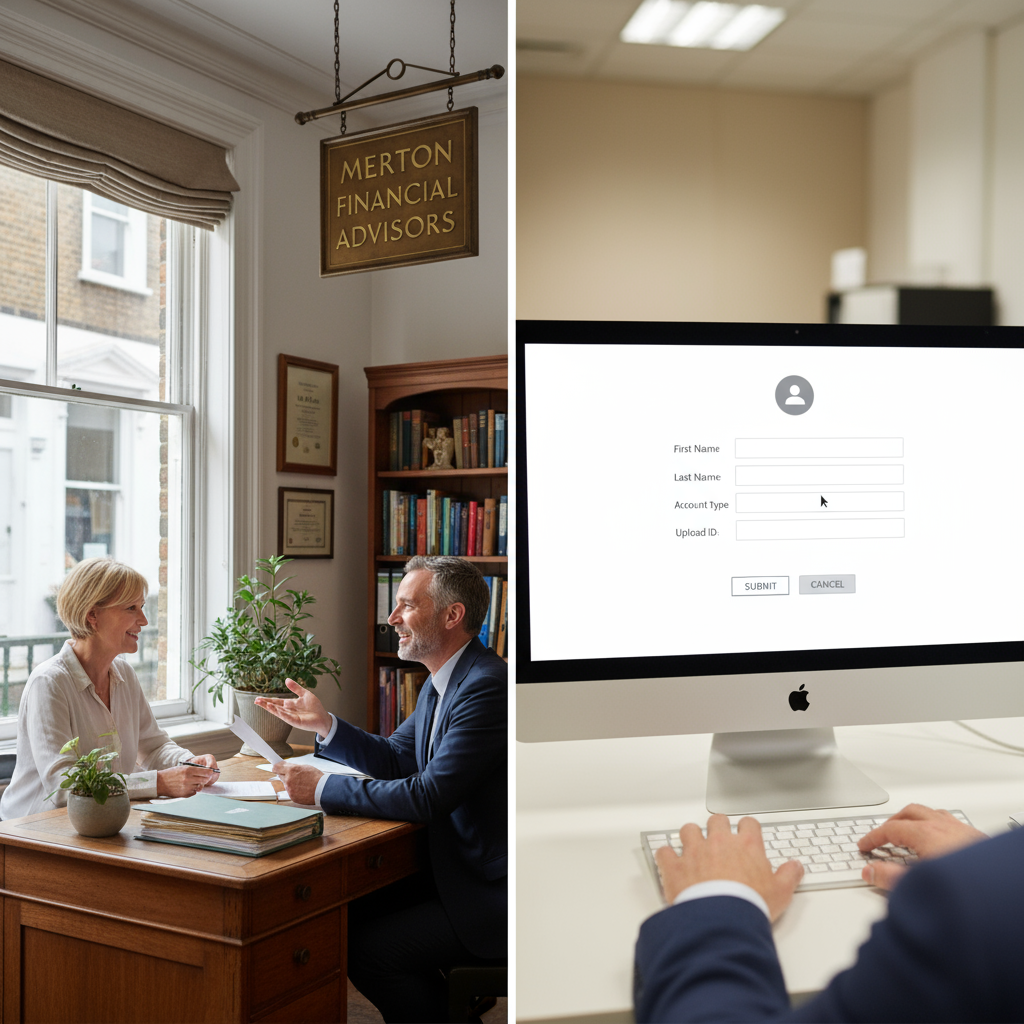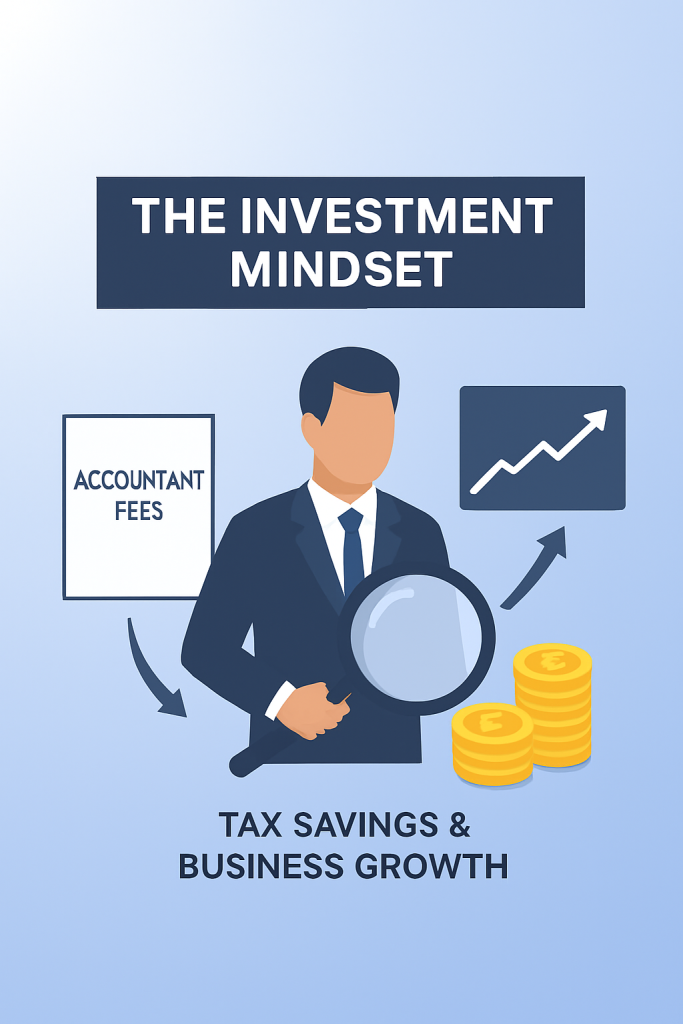
Let me tell you something that’ll make you wince. Last year, I watched a brilliant freelance graphic designer—someone who creates stunning visual narratives for major brands—fumble through her tax return like she was trying to solve a Rubik’s cube blindfolded. She spent three weekends wrestling with HMRC forms, claimed roughly half the deductions she was entitled to, and ended up paying £2,400 more than necessary.
Sound familiar?
If you’re self-employed, you’ve probably had that moment. You know, when you’re staring at receipts scattered across your kitchen table at 11 PM, wondering whether that coffee meeting counts as a business expense, and questioning every life choice that led you to work for yourself. Here’s the thing: while independence feels liberating, navigating the tax system solo can be like performing surgery with gardening tools.
This isn’t another boring lecture about why you need an accountant for self employed near me. Instead, it’s about understanding why the right professional relationship might be the difference between scraping by and actually thriving in your business.
The Hidden Cost of Going Solo
Most self-employed people approach their taxes with the same mindset they use for assembling IKEA furniture: “How hard can it be? I’ll figure it out myself.” The problem? Tax legislation changes faster than fashion trends, and missing opportunities isn’t just about paperwork—it’s about real money staying in your business instead of unnecessarily flowing to the taxman.
Consider this: the average self-employed person overpays their taxes by 15-20% annually. Not because they’re generous souls who enjoy funding government initiatives, but because they’re unaware of legitimate deductions hiding in plain sight.
The Deduction Detective Work Most People Never Do
When I ask self-employed clients about their expenses, they usually rattle off the obvious ones: office rent, equipment, maybe some travel costs. But what about the £45 monthly phone bill where 60% of calls are business-related? The home office that’s eating up utilities and mortgage interest? The professional development course that’ll keep you competitive?
Here’s a table showing commonly missed deductions and their potential annual savings:
| Missed Deduction Category | Average Annual Amount | Potential Tax Saving (20% rate) |
| Home office expenses (simplified) | £1,248 | £250 |
| Professional subscriptions & memberships | £480 | £96 |
| Business proportion of phone/internet | £360 | £72 |
| Training & professional development | £1,200 | £240 |
| Business banking & finance charges | £240 | £48 |
That’s over £700 in potential savings from just five commonly overlooked areas. Multiply that over several years, and you’re looking at enough money to fund a proper holiday or invest back into growing your business.

Beyond the Numbers: Strategic Tax Planning
But here’s where things get interesting. A skilled accountant doesn’t just help you claim what you’ve already spent—they help you spend strategically.
Take pension contributions. Most self-employed people treat pensions like vegetables: they know they should have them, but somehow never get around to it. Yet pension contributions can reduce your tax bill pound for pound while securing your future. It’s not just about this year’s return; it’s about creating a long-term strategy that works with your business goals.
I’ve seen freelancers incorporate their businesses purely to access different tax structures, others time their income across tax years to stay within beneficial bands, and some structure their expenses to maximise capital allowances. These aren’t accounting tricks—they’re legitimate strategies that require expertise to execute properly.
The Local Advantage: Why “Near Me” Actually Matters
In our digital world, you might wonder why physical proximity to your accountant matters. Can’t everything be handled via email and cloud software?
Well, yes and no.
Sure, your basic bookkeeping can happen remotely. But when you need to discuss complex business decisions, understand local regulations, or navigate HMRC enquiries, having someone who understands your specific area—and is available for face-to-face meetings—becomes invaluable.
Local accountants also understand regional business patterns. If you’re operating in London, your accountant for self employed near me should know about Transport for London expenses, congestion charges, and the specific challenges of running a business in an expensive city. They’ll be familiar with local HMRC offices and have established relationships that can smooth out problems before they become crises.
Ask Accountant, located at 178 Merton High St, London SW19 1AY, exemplifies this local expertise combined with comprehensive services—from inheritance tax planning to business growth strategies. They understand that self-employed professionals need more than just annual tax returns; they need ongoing business advice that adapts to changing circumstances.

The Real-Time Advisory Advantage
Most people think of accountants as annual necessities—someone you call when tax deadlines loom. But the real value comes from ongoing relationships.
Imagine having someone you can call when a client offers you a large contract that would push you into a higher tax bracket. Or when you’re considering expensive equipment purchases. Or when you’re thinking about taking on employees for the first time.
These decisions have tax implications that ripple through your business for years. Getting advice before you commit can save thousands and help your business grow more strategically.
Common Misconceptions That Cost Money
Let me address some dangerous myths that keep self-employed people from maximising their deductions:
Myth 1: “I can only claim expenses if I have receipts for everything.”
Reality: While receipts are ideal, there are circumstances where other evidence suffices. Bank statements, diary entries, and mileage logs can support legitimate claims.
Myth 2: “Home office deductions will trigger an HMRC investigation.”
Reality: Simplified expenses exist precisely because working from home is common. Used correctly, they’re perfectly acceptable.
Myth 3: “Accountants are only worth it if you earn six figures.”
Reality: The tax savings and strategic advice often pay for the accountant’s fees several times over, regardless of income level.
Technology vs. Human Expertise
Here’s something that might surprise you: I’m not anti-technology. Accounting software has revolutionised how we track expenses and manage records. Apps like Xero and QuickBooks, and even smartphone receipt scanners can streamline your financial admin considerably.
But—and this is crucial—technology can’t provide context or strategy. It can categorise your expenses, but it can’t tell you whether incorporating your business would reduce your overall tax burden. It can generate reports, but it can’t help you plan for major purchases or explain the tax implications of different business structures.
The sweet spot? Use technology for data capture and organisation, but rely on human expertise for interpretation and strategy.
Red Flags: When DIY Becomes Dangerous
Some situations absolutely require professional help. If any of these apply to you, don’t attempt a solo approach:
- Your annual turnover exceeds £85,000 (VAT registration threshold)
- You’re considering incorporating your business
- You have multiple income streams with different tax treatments
- You’ve received any communication from HMRC
- You’re planning significant business investments or expansions
- Your business involves complex expense categories (like research and development)
Here’s a slightly chaotic table showing warning signs and their typical consequences:
[elementor-template id=”table-2″]
The Investment Mindset
I need you to shift your thinking about accountant fees. This isn’t a cost—it’s an investment in your business efficiency and growth.
When you calculate the value, don’t just consider the tax savings (though those alone often exceed the fees). Factor in the time you’ll save, the stress you’ll avoid, the strategic opportunities you’ll identify, and the peace of mind that comes from knowing your affairs are properly managed.
Most established accountants offering services like tax advisory solutions, business accounting services, and proactive tax advisory solutions structure their fees to provide clear value. The initial consultation should give you a realistic picture of potential savings and ongoing benefits.

Making the Right Choice
Not all accountants are created equal, particularly when serving self-employed clients. You want someone who:
- Specialises in self-employment and small business issues
- Provides proactive advice, not just reactive compliance
- Uses modern technology but maintains personal service
- Understands your industry or business type
- Offers transparent fee structures
- Can grow with your business
For those seeking an accountant for self employed near me in South London, Ask Accountant (contactable at +44(0)20 8543 1991) offers comprehensive services from bookkeeping and auto-enrolment to business growth planning—exactly the kind of scalable relationship that adapts as your business evolves.
Your Next Steps
Here’s what I suggest: gather your last two years of tax returns, list your current business expenses, and book a consultation with a qualified accountant for self employed near me. Come prepared with questions about your specific situation and potential strategies for the year ahead.
Don’t wait until January when everyone’s scrambling to meet deadlines. The best tax planning happens throughout the year, with decisions made strategically rather than under pressure.
The freelance designer I mentioned earlier? She finally hired proper help. Last year, she saved enough in taxes to fund a complete office renovation and a professional development course that landed her three new major clients.
Sometimes the best investment in your business isn’t new equipment or marketing—it’s ensuring you keep more of what you earn by finding the right accountant for self employed near me.
Quick reality check: I recently helped a consultant discover she’d been missing out on £180 monthly in legitimate business expense claims. That’s over £2,000 annually—enough to fund her professional indemnity insurance and still have money left for a weekend break. The moral? Stop leaving money on the table.
Frequently Asked Questions
How much should I expect to pay for accounting services?
Fees vary significantly based on complexity, but most self-employed individuals pay £600-£2,000 annually for comprehensive services. The tax savings typically exceed these costs.
Can I switch accountants if I’m unhappy with my current service?
Absolutely. Professional accountants expect some client movement and should facilitate smooth transitions of your records and HMRC agent authorisations.
Do I need an accountant if I use accounting software?
Software handles data entry and basic calculations, but strategic advice, complex deduction planning, and HMRC liaison require professional expertise. An accountant for self employed near me provides the human insight software cannot.
What’s the difference between a bookkeeper and an accountant?
Bookkeepers record transactions; accountants provide strategic advice, tax planning, and business guidance. Many practices offer both accounting and bookkeeping services.
How often should I communicate with my accountant?
Beyond annual tax returns, quarterly check-ins help with strategic planning, while immediate contact for major business decisions prevents costly mistakes. A good accountant for self employed near me should be accessible when you need guidance.
What should I look for when choosing an accountant for self employed near me?
Look for someone with experience in your industry, proactive communication, transparent pricing, and comprehensive services. They should offer everything from basic small business accounting services to strategic business advisory support as your needs evolve.







